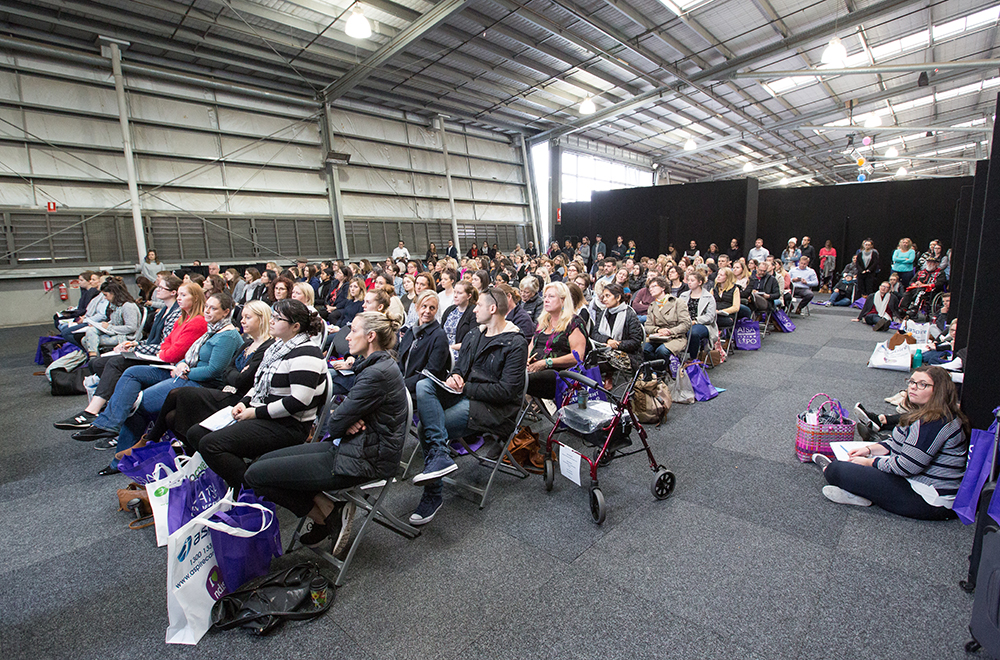NDIS policy changes, new resources and other developments were discussed by NDIS Assistive Technology Market & Providers director, Dr Lloyd Walker at ATSA Melbourne. Walker opened his presentation by referring to the benchmark the NDIS has to live within given it operates as an insurance program. “Our focus is in strengthening the foundations of the NDIS and redesigning some aspects that were done initially in the trials. The strategy agreed by the National Disability Insurance Agency (NDIA) board remains for people with disability to achieve their goals in an inclusive community and workplace,” he said. “Measures we are looking at are linked to the experience of the participants, the market place, supports we offer, the financial sustainability of the scheme and the performance of the agency overseeing the NDIS.”
Already, more than 142,000 Australians are benefitting from the NDIS, 9,532 of them children.
Walker spoke of the changes that came into effect in 2018 with a simplification of policy relating to low value/low risk Assistive Technology and Home Modifications items to the value of $1000. He said evidence suggests this will meet the needs of about 50 per cent of participants with around 25 per cent likely to need specialised assessment. However, assessments and quotes for items above $1500 will still need to be submitted.
A panel of assessors is being formed to provide specialist assessments for participants who may require a home visit or video-link and the assessment template will be standardised to facilitate consistency. “There have been inconsistencies in the process with participants not getting additional funding into their plans for repairs on equipment that have led to delays,” Walker said. “Planners will rely on these as factual evidence with the aim of reducing quotes by 98 per cent.” For new fact sheets on these requirements go to: www.ndis.gov.au
To assist participants and providers contact relevant regional teams for submitting assessment forms, quotes, queries and follow-up there are now dedicated emails addresses for each region: AT.VICWest@ndis.gov.au; AT.QLDSouth@ndis.gov.au; AT.SA@ndis.gov.au. etc. “Because it is monitored we can guarantee the email address is tracked and escalated where necessary with the senior officer,” he said.
A new Provider Toolkit is available online that replaces the paper-based version, and carries a range of resources, service agreements and updates. To access visit: www.ndis.gov.au/providers
A centralised provider payments team was set up in February which is a one-point contact for providers and said to reduce time delays. Go to: https://ndis.gov.au/providers/pricing-and-payment.
Other developments announced last month include liaison with regulators including the ACCC and the TGA in order to create a safe market and also working with ATSA to investigate ways to encourage industry self- regulation. “It is important as we encourage business to go out to market that they have some concrete methods to determine who is a legitimate provider who will deliver good service. Want to make it clear of our intentions to tighten up the market,” Walker said.
Also under consideration are enhancing options to improve sourcing of AT and areas to improve access to hire and lease pools of equipment for children and those with changing conditions. “One of the biggest challenges we face is when people need to get equipment repaired when often it was not predictable and how to meet these costs and needs. Suppliers and manufacturers have to be made accountable because most people don’t always have the funds to replace a gearbox two years into service.”
Another area being explored is around concierge or broker solutions with state schemes and providers appraising this space.
In an alert to providers, Walker made reference to the NDIS Quality and Safeguards Commission, a new body established by law that operates through the DSS and takes effect in NSW and South Australia from July. Registration for quality and safeguards after that date will fall to the Commission, not the NDIA. In other states the agency will continue to be responsible for registration until transition into the commission. For more information about meeting these registration requirements visit: NDISQualitySafeguards@dss.gov.au and factsheets for providers, participants and an overview visit: www.dss.gov.au/ndisqualitysafeguards
Click here for a copy of Lloyd Walker’s presentation*.
*Please note: This material is general in nature. Information provided in publications of National Disability Insurance Agency is considered to be true and correct at the time of publication. Changes in the circumstances after time of publication may impact on the accuracy of this information and National Disability Insurance Agency gives no assurance as to the accuracy of any information or advice contained. Such material is assembled in good faith, but does not necessarily reflect the considered views of National Disability Insurance Agency, or indicate a commitment to a particular course of action.

